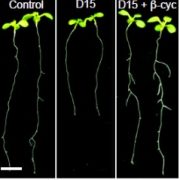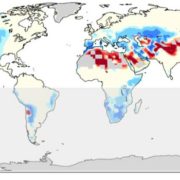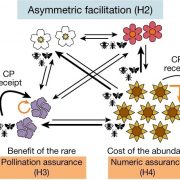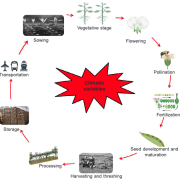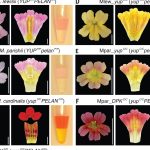More warm-adapted species in soil seed banks than in herb layers
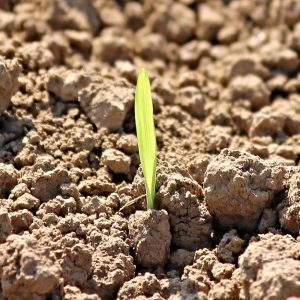 Climate change profoundly impacts plant communities, for example, by changing the geographic range of some species and locally extinguishing others. Yet these changes take time, maybe a few years, to be observed. This lag between climate and plant communities changes could result from the soil seed bank (i.e., the reserve of viable, ungerminated seeds in and on the soil), which is assumed to buffer the effect of unsuitable conditions. In this exciting research, Auffret and collaborators use 54 soil seed bank datasets from studies across Western Europe to explore the role of the soil seed bank in mitigating the impacts of climate change. Species from warmer climates and broader distributions were found to produce seeds that persist more in the soil. In contrast, aboveground plant communities comprised species associated with relatively cooler temperatures. These results imply that soil seed banks might not delay but facilitate plant community changes towards communities dominated by warm-adapted species. Thus, species associated with cooler climates are more at risk of disappearing from local communities. As a result, this study provides fascinating insights into the mechanisms that control plant community responses to climate change (Summary by Carlos A. Ordóñez-Parra @caordonezparra) J. Ecol. 10.1111/1365-2745.14074
Climate change profoundly impacts plant communities, for example, by changing the geographic range of some species and locally extinguishing others. Yet these changes take time, maybe a few years, to be observed. This lag between climate and plant communities changes could result from the soil seed bank (i.e., the reserve of viable, ungerminated seeds in and on the soil), which is assumed to buffer the effect of unsuitable conditions. In this exciting research, Auffret and collaborators use 54 soil seed bank datasets from studies across Western Europe to explore the role of the soil seed bank in mitigating the impacts of climate change. Species from warmer climates and broader distributions were found to produce seeds that persist more in the soil. In contrast, aboveground plant communities comprised species associated with relatively cooler temperatures. These results imply that soil seed banks might not delay but facilitate plant community changes towards communities dominated by warm-adapted species. Thus, species associated with cooler climates are more at risk of disappearing from local communities. As a result, this study provides fascinating insights into the mechanisms that control plant community responses to climate change (Summary by Carlos A. Ordóñez-Parra @caordonezparra) J. Ecol. 10.1111/1365-2745.14074


